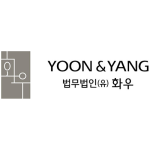Korea is home to a highly advanced information technology industry with high-speed internet and wireless communications network. Thanks to this favourable environment, Korea has witnessed an upsurge of investment in cryptocurrencies since the beginning of 2017. The volume of bitcoins traded in Korea is now the world's third largest, and several of the world's biggest cryptocurrency exchanges in terms of trading volume reside in Korea.
However, Korea is yet to have legislated any particular bodies of law or regulations to deal directly with cryptocurrency-related issues, such as the mining and trading of cryptocurrencies, initial coin offerings (ICOs) or the establishment of cryptocurrency exchanges. Further, no anti-money laundering (AML) regulations in relation to cryptocurrencies have been legislated. Therefore, traders traded cryptocurrencies without restriction, using accounts with cryptocurrency exchanges that are linked to their bank accounts.
Because of this regulatory vacuum and the growing speculative demand for cryptocurrencies arising from the sudden increase in their market value, Korea witnessed a rapid spike in the volume of cryptocurrencies traded since the summer of 2017. Accordingly, regulators voiced growing concerns about trading in cryptocurrencies.
In response, the Korean government made public the Special Measures to Eradicate Speculation in Cryptocurrencies in December 2017. As a follow-up measure, the Financial Services Commission (FSC) introduced a real-name transaction regime for cryptocurrencies and announced its plan to put into effect the Cryptocurrency Anti-money Laundering Guidelines (the Guidelines) for a one-year period starting on January 30 2018.
The definition of a cryptocurrency and real-name bank accounts
The Guidelines define a cryptocurrency as an 'electronically transferrable certificate or information therein that can be recognised by the counterparty of a transaction as a medium of exchange or a store of value,' expressly excluding electronic certificates, gift cards and electronic means of prepayment, which had already been widely used in Korea. It marked the first time that Korean regulations provided a definition of cryptocurrency, and future regulations on cryptocurrencies will likely use this definition.
The Guidelines stipulate that users of cryptocurrency exchanges (defined as an 'exchange' in the Guidelines) may only make deposits and withdrawals with the same bank using real-name bank accounts at the bank, in order to prevent money laundering using methods such as remitting funds from a cryptocurrency exchange to banks other different from the bank that the user initially used to make deposits.
AML obligations regarding cryptocurrencies
The Guidelines stipulate that they apply to all 'financial companies etc' (henceforth, financial companies) that are subject to supervision by the FSC, just like the Act on Reporting and Using Specified Financial Transaction Information (the Specified Financial Information Act), the AML statute that had already been in place in Korea. Therefore, the Guidelines are applicable not only to financial companies such as banks, securities and insurance companies but also to casino business operators. However, since cryptocurrencies are converted into cash through bank accounts linked to cryptocurrency exchanges, banks are most directly affected by the Guidelines.
Also, it is noteworthy that the Guidelines do not expressly state that they directly apply to cryptocurrency exchanges.
Customer due diligence and enhanced cryptocurrency exchange due diligence
The Guidelines require financial companies, to conduct customer due diligence (CDD) to verify the line of a customer's business, analyse the types of transaction and identify whether a customer is a cryptocurrency exchange through information sharing with other financial companies.
If a financial company identifies a certain customer as a cryptocurrency exchange, then the financial company, is required to conduct an in-depth customer due diligence which includes obligations to conduct inquiries into:
the services offered by the exchange;
whether the exchange uses the real-name account service;
the identity of users of the exchange;
whether the exchange manages its proprietary assets separately from its customers' assets;
whether the exchange handles transaction records separately for each customer;
whether the exchange notifies its customers that cryptocurrencies are not a form of legal tender and that certain risks are entailed in trading cryptocurrencies;
whether the exchange uses bank accounts under the name of its officers or employees for cryptocurrency trading; and
whether the exchange complies with Korean regulations on cryptocurrencies, etc.
If a cryptocurrency exchange is suspected of using a bank account under a different corporation's or individual's name to engage in cryptocurrency-related financial transactions (transactions using another person's account), financial companies are then required to conduct enhanced due diligence (EDD) to make inquiries into the purpose of such transactions and the source of capital, inter alia.
Suspicious transaction reporting
With respect to cryptocurrency trading, the Guidelines provide the following, inter alia, as examples of suspicious transactions:
receiving funds from a cryptocurrency exchange without having purchased cryptocurrencies and withdrawing the funds in cash;
transactions in multiple batches;
foreign currency transactions;
high volume transactions, of which value exceed KRW10 million (approximately $9,250) per day or KRW20 million in aggregate for seven days; and
transactions with officers or employees of a cryptocurrency exchange.
In case of such transactions, financial companies are required to submit a suspicious transaction report (STR) to the Korea Financial Intelligence Unit (KoFIU).
Internal controls and refusal to process transactions
In addition to the CDD, EDD and STR requirements, the Guidelines require financial companies to have implemented internal control measures, including supervisory obligations on the board of directors and the management and requirements to provide employee training, among other things, to prevent money laundering using cryptocurrencies.
Further, the Guidelines require financial companies to reject the processing of transactions in cases where such transactions are suspected of money laundering using cryptocurrencies.
Limitations of the Guidelines
The Guidelines require financial companies to take measures with respect to transactions relating to cryptocurrencies that are as restrictive as the existing AML regulations and impose punitive sanctions on financial companies and their officers and employees in the case of any violation of the Guidelines.
However, some have criticised the Guidelines for lacking legal grounds and being overly restrictive based on the following reasons: cryptocurrency exchanges are excluded from the expressed scope of the Guidelines' application; the Guidelines are guidelines, an administrative guidance of the FSC, and not a law or a presidential decree; and financial companies will have difficulties in meeting the burdensome CDD requirements. On the other hand, the Guidelines have achieved a tangible impact on the market, as the volume of cryptocurrency transactions in Korea has declined since their promulgation.
Forecast on the development of AML regulations related to cryptocurrencies
Since the Guidelines are applicable only to financial companies they are limited in regulating money laundering carried out within the cryptocurrency exchanges where cryptocurrency transactions actually take place. Legislators have taken note of this issue and multiple bills that aim to impose AML obligations directly on cryptocurrency exchanges themselves have recently been introduced in the National Assembly. As such, we expect Korea's AML regulations relating to cryptocurrencies to be strengthened, and the scope of their application to expand.
In addition, it has been reported that the introduction of possible regulatory measures on cryptocurrencies will be discussed at the G20 meeting of Finance Ministers and Central Bank Governors on July 21 2018. Korea has actively supported the application of AML obligations and regulations on activities relating to cryptocurrencies, as made evident in its overview of the Korean cryptocurrency market and the relevant AML regime at the last G20 meeting. It would be interesting to keep a watchful eye on how Korean cryptocurrency AML regulations and those to be discussed at the next G20 meeting will influence each other.
About the author |
||

|
|
Soonghee Lee Partner, Yoon & Yang Seoul, South Korea T: +82 2 6003 7507 As a head of the corporate and finance practice group, Soonghee Lee mainly focuses on finance and securities-related work. Lee is highly experienced in advising on financial regulations, cryptocurrencies, anti-money laundering, capital markets litigation and dispute resolution, and various transactions involving financial institutions, financial investment companies, cryptocurrency exchanges and listed companies in Korea. His expertise includes advising on financial investment instruments, including structured securities, such as foreign exchange derivatives, ELS and other financial derivatives, ISDA contracts, and the investigation and inspection of financial supervisory institutions. He has acted as lead partner for acquisitions of savings banks and Indonesian banks, and major financial derivatives-related disputes over knock-in knock-out (Kiko), equity-linked securities (ELS) and equity-linked warrants (ELW) on behalf of Shinhan Bank, Woori Bank, the Industrial Bank of Korea, Mirae Asset Securities and KDB Daewoo Securities. He also provides legal advice to cryptocurrency exchanges and financial institutions in Korea on issues such as cryptocurrency and anti-money laundering. |
About the author |
||

|
|
Jae Ryun Cho Senior associate, Yoon & Yang Seoul, South Korea T: +82 2 6003 7795 Jae Ryun Cho is a senior associate at Yoon & Yang and his practice focuses on corporate affairs, M&A, finance, securities, commerce, cryptocurrencies and general litigation. He provides general legal advisory services to companies and financial firms regarding a wide range of issues, including anti-dumping, overseas firms' listing on the Korean Stock Exchange, cross-border IPOs, derivatives, and China-related matters. He has handled disputes regarding corporate control and litigation on finance, securities and funds. He also provides legal advice to cryptocurrency exchanges and financial institutions in Korea on issues such as cryptocurrency and anti-money laundering. |



